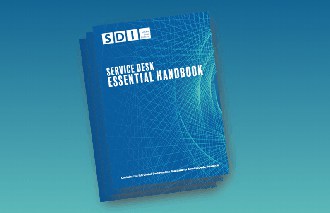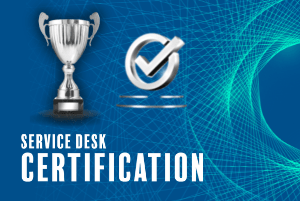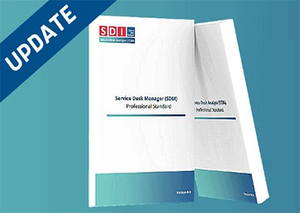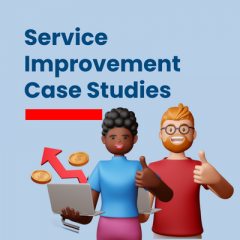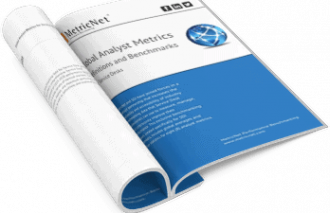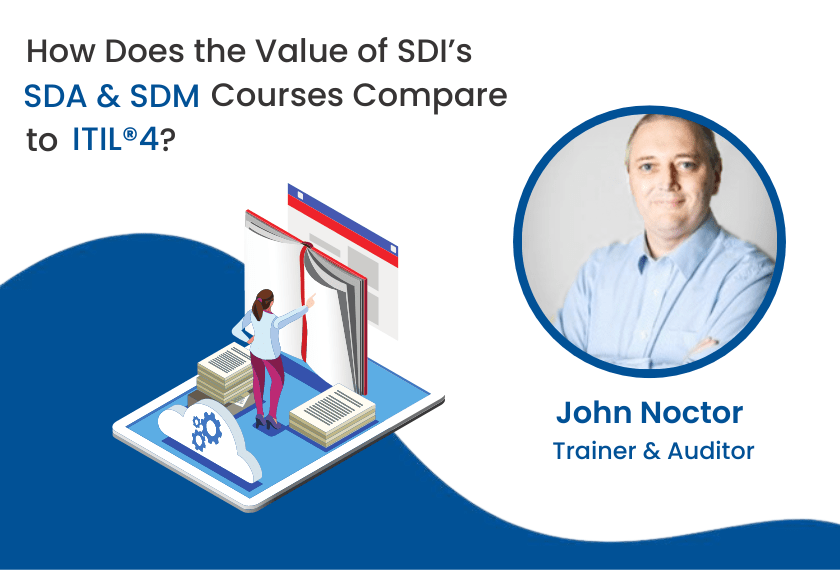
Question: “So I’ve done ITIL® 4 Foundation, why should I take (and why do I need!) SDI’s Service Desk Analyst (SDA) or Service Desk Manager (SDM) course, what is the value to me?”
Find the answer to this common question and gain insight into these popular courses from ITSM expert John Noctor, Best Practice Consultant, Certified Trainer, Service Desk Certification Auditor and ITIL Expert.
As a trainer of all 3 courses, ITIL® 4, Service Desk Analyst (SDA), and Service Desk Manager (SDM), I am often asked
“If I’ve done my ITIL® 4 is there any point in taking an SDA or SDM course and qualification?”
This is a question that if you asked the people who have done the SDA/SDM courses, they would likely shout loudly “Yes! It’s an absolute must!”
To elaborate on and understand this, we need to explore the fundamental principles and approach of these courses…
What does the ITIL® 4 Foundation course offer?
The ITIL® 4 Foundation course states its purpose as “providing organizations with comprehensive guidance for the management of IT-enabled services in the modern service economy”. As an ITIL® 4 trainer of more than 17 years, I can safely say that for me ITIL® 4, more than other versions, is relatable and easier to see how its principles and approach can be adopted into today’s modern digital organizations.
However, the challenge is that whilst ITIL® 4 shows you the path, explains the journey, the benefits, and the “why”? it does not at a service desk level equip you with the necessary tools that traverse that path. This is where SDA/SDM comes in – designed specifically with service desk roles in mind.
SDI’s SDA & SDM courses are fully dedicated to service desk roles
When I follow up with service desk people who have been on the ITIL® 4 Foundation course, whilst they have understood the framework and seen the value, they often say “it was great but I can’t see what it really means to me in my role.” THAT is the power of SDA and SDM, these are courses that are fully dedicated to service desk roles, we address the requirements of the role, and the everyday challenges they face, give practical advice and guidance on every aspect of working on the service desk, and effectively equip them with the tools they need to excel.
Advance your Service Desk role through thorough training based on real-life experience
To support the above, here is a powerful consideration: in the 2-Day ITIL® 4 Foundation we talk about Service Desk as a practice and probably spend 20-30 minutes covering basic principles, in the 3-day version we may get 45 minutes to an hour. The SDA course is 3 days and the SDM course is 4, giving us the opportunity to go into a deep level of detail and use real-life experiences to equip delegates with the tools they need to advance in their roles.
I would recommend ITIL® 4 to anyone working in IT Service Management. A value-driven approach to service provision is essential, however by its nature the course looks across the IT organisation and can be overwhelming in terms of its scope and content.
SDA and SDM courses live in “their world” we talk their language, address their needs and day-to-day challenges, and show them how to cope with their role and embrace continual improvement and an ethos of service excellence.
Applying ITIL® 4 Practices to the Service Desk with SDA/SDM
One point of interest is that in both SDA and SDM courses we spend time talking through ITIL® 4 Practices and processes; however, applying a service desk focus ensures delegates understand how to interact with wider IT provision. In fact, after each practice, we have a slide simply called “service desk responsibilities” with regards to it.
I could argue that for a service desk agent, there is more value in doing the SDA course than ITIL® 4. This is because we cover the basic ITIL® 4 fundamentals within it, so they “get what they need”. So, for an Analyst, do you attend a 2-day ITIL® 4 course where we spend 20 minutes talking about your world? Or a 3-day SDA course where we spend 2.5 days in your world, providing a very good grounding in what ITIL® 4 is, plus the key practices you will interact with on a day-to-day basis?
The SDM course does a deeper dive into ITIL® 4 but once again the majority of the syllabus is SDM role-specific, covering areas such as:
- Defining a strategy to promote the service desk
- Recruitment
- Staff development and management
- Organizational change and project management
- How to approach business cases
- Teamwork and communication skills
- Leadership skills
- Optimising ITSM tooling
- Quality assurance and management information
- The SDM role itself and how to address the many scenarios, challenges, and pain points they will encounter.
From an ITSM practitioner’s perspective
As an ITSM practitioner for many years, I always want to see my staff excel. This ensures success for the IT organization and the whole business. To this end, I need to help them develop and progress – role-specific courses are vital for this.
Despite (in my opinion) being one of the most vital “cogs” in your ITSM wheel, the skills and attributes of the service desk are too often undervalued elsewhere in IT. It is accepted that technical people need technical development to advance and succeed in their role, and it’s not questioned why these would be of value. However, the same consideration is not given to the service desk, the single and ongoing point of contact between IT and its users.
Why Service Desk staff development is so important
Failure to develop service desk staff to be the best they can be can lead to:
- Lack of satisfaction from both service desk staff and the business
- An inability to provide first-class service and customer experience
The ITIL® 4 Foundation is a fantastic course and provides significant value to delegates. However, the course does not go into the detail needed to provide the level of excellence required in today’s digital organizations.
In closing, maybe the question we should be asking is “So I’ve done the SDI’s Service Desk Analyst/Service Desk Manager course, why should I take, and why do I need, ITIL® 4 Foundation?”
Click below to find out more about the SDI courses mentioned in this article:
